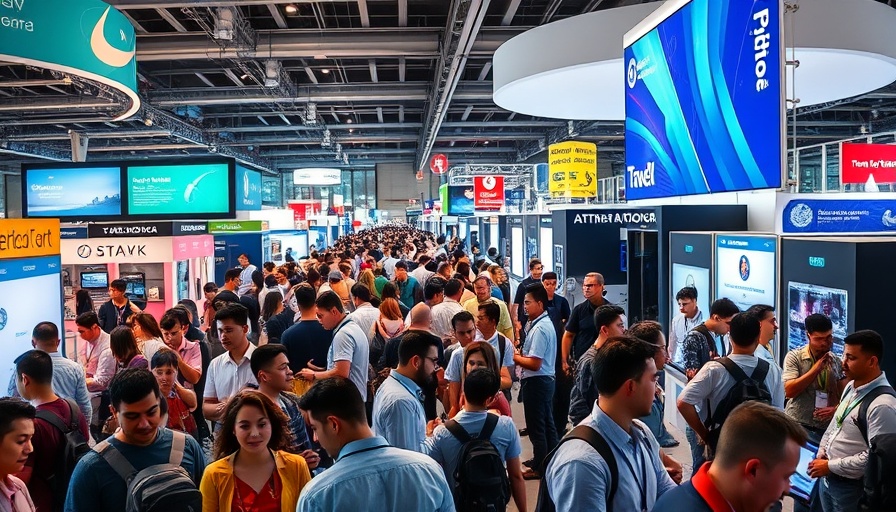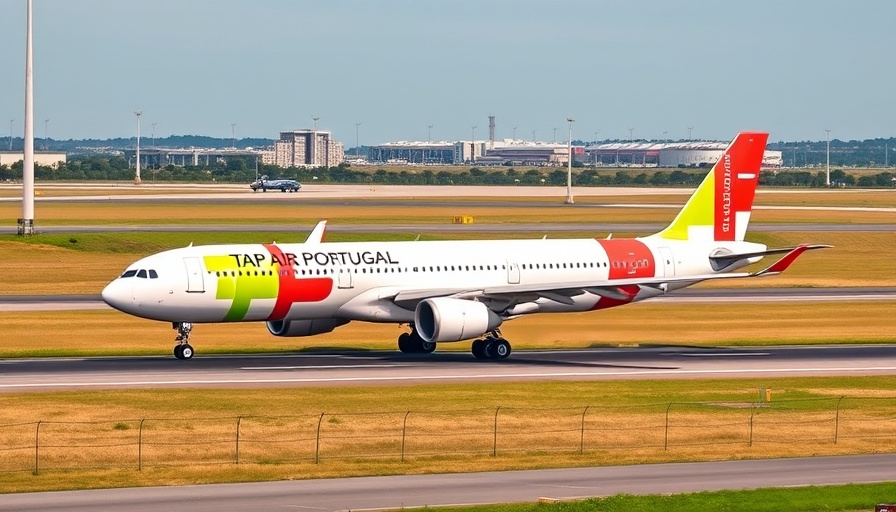
AI: The New Travel Companion for UAE Tourists
As technology sweeps through the travel landscape, AI has firmly entrenched itself as a trusty companion for UAE tourists. A recent report from Tourism Economics indicates that a whopping 60% of travelers in the UAE rely on artificial intelligence to plan their trips. This is significantly higher than the global average, where only 48% of travelers seek help from AI tools. The report predicts this trend won't stop here; as technology becomes increasingly embedded in our daily lives, more travelers will turn to AI for travel planning, booking, and even experiencing their voyages.
Transforming How We Experience Travel
In recent times, many travelers have found a friend in AI applications that help them navigate the complexities of planning a trip. Approximately 21% of UAE travelers reported using AI before their last excursion, relying on this technology for more personalized and focused recommendations. Creative solutions such as Sabre Hospitality's SynXis Concierge AI, offer travelers immediate access to answers while alleviating pressure on hotel staff. This trajectory not only smooths the planning phase but enhances the actual travel experience, aligning perfectly with today's swift pace.
Fostering Meaningful Human Connections
While AI might seem to threaten human interaction, industry experts argue that technology can augment the role of human connection in the travel industry. Amy Read, a VP at Sabre Hospitality, emphasized this point by stating, "Human connection is at the core of hospitality." Instead of replacing the personal touch, AI offers opportunities for staff to engage in more meaningful interactions, freeing them from repetitive tasks. As guests expect faster answers and personalized service influenced by handpicked AI tools, the hospitality industry can pivot toward enriching human interactions while leveraging technology.
The Benefits of Co-Creation in Travel Services
As personal consumer experiences are prioritized, travel companies are adopting co-creation methodologies, aligning their innovations to customer needs. Companies like Almosafer are developing user-focused tools based on common traveler pain points, enhancing overall satisfaction and loyalty. Meanwhile, platforms such as Expedia TAAP empower travel agents to contribute to technology development, ensuring insights directly influence design and functionality. This strategic collaboration highlights the shift towards a more consumer-centric travel industry.
AI in the Business Events Sector: More Than Just Planning
The integration of AI has also extended its utility to the Meetings, Incentives, Conferences, and Exhibitions (MICE) sector. The global meetings and events industry is projected to grow into a USD 2.3 trillion market by 2032, making efficiency a priority. AI tools streamline planning processes, improving the overall experience for attendees and organizers alike. With such significant growth forecasted, it is evident that the successful merging of AI with human interaction could redefine this sector.
Real Stories: How AI is Enhancing Family Travel
Families looking to make the most of their vacations are particularly benefiting from AI advancements. Imagine a busy parent using an AI-powered app to craft the perfect itinerary for a family trip, while ensuring that there are suitable activities for each age group. These tailored recommendations assure parents that everyone in the family will have a delightful experience.
What Lies Ahead: Future Trends in Travel and Technology
As AI continues to evolve, future predictions suggest that its role in travel planning and experiences will only expand. With tech-savvy millennials and Gen Z travelers leading the way, AI-driven solutions will likely take center stage. Yet, the challenge for the industry will be to maintain the essential human touch as they adapt to ever-changing consumer expectations.
The Bottom Line: Embracing Both Technology and Human Connection
The takeaway is clear: while AI is reshaping the landscape of travel planning, companies must prioritize understanding consumer behavior and the unbreakable need for human connection. In an age where 60% of travelers in the UAE embrace AI-assisted planning, hospitality providers face a golden opportunity to blend technology with the personal touch that their customers crave. Ultimately, the most successful travel experiences of the future will be those that harmonize AI's efficiency with the warmth of human connections, ensuring unforgettable journeys for families and travelers alike.
With advancements in technology empowering both travelers and hospitality providers, it is crucial for companies to tap into these new tools while also nurturing the human relationships at the heart of the travel experience.
 Add Row
Add Row  Add
Add 




Write A Comment